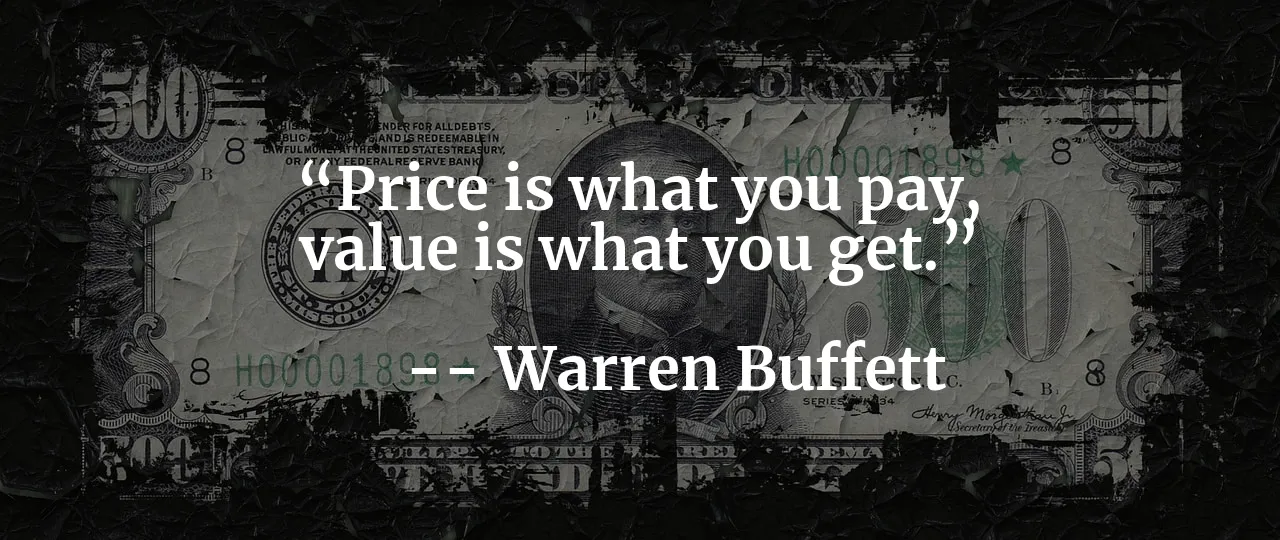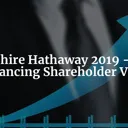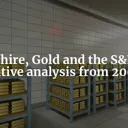Tags: Share Buyback
This fanpage is not officially affiliated with Berkshire Hathaway: Disclaimer
Berkshire Hathaway's recent stock price surge may seem like good news for shareholders, but there are potential downsides to consider. This article explores the risks associated with a high stock price, the impact of stock buybacks, and the proposed excise tax on buybacks by the Biden administration. Shareholders should consider diversifying their investments and carefully examining the potential risks and rewards associated with investing in a company with a high stock price and frequent buybacks. Ultimately, balancing short-term gains with long-term sustainability is crucial for protecting investments in the company.

Introduction
In recent times, Berkshire Hathaway has experienced a significant stock price surge. While this may initially seem like good news for shareholders, it is essential to consider the potential downsides of investing in a company with a high stock price. This article will delve into the dark side of Berkshire Hathaway's stock price surge, exploring the risks associated with a high stock price, the impact of stock buybacks, and the proposed excise tax on buybacks by the Biden administration. By examining these factors, shareholders can make informed decisions about their investments in Berkshire Hathaway.
Understanding Price to Book Value Ratio
To better comprehend the implications of Berkshire Hathaway's stock price surge, it is crucial to understand the price to book value ratio. This valuation ratio is calculated by dividing a company's stock price by its book value per share. The book value represents the tangible accounting value of a firm compared to its market value. A higher price to book value ratio indicates that the market perceives the company to be more valuable than its tangible assets.
According to YCharts1, Berkshire Hathaway's price to book value ratio was 1.425 on May 19, 2023. Over the past five years, this ratio has ranged from 0.9279 to 1.570, with an average of 1.345. The median price to book value ratio for Berkshire Hathaway on Jan 03, 2019, was 1.353. These historical trends suggest that the company's current stock price surge may be a cause for concern for long-term investors.
The Risks of High Stock Price
A high stock price can be risky for long-term investors for several reasons. Firstly, a high stock price may indicate that the company is overvalued, which could lead to a correction in the market and a subsequent drop in the stock price. This would result in losses for investors who bought shares at the peak of the surge. Additionally, a high stock price can also impact dividend payouts and stock buybacks. Companies with high stock prices may be less likely to increase dividend payouts, as they may prefer to reinvest their profits into the business or repurchase their shares.
Comparing Berkshire Hathaway to other companies with high stock prices and their historical performance can provide valuable insights. For example, during the dot-com bubble, many technology stocks experienced a rapid surge in stock prices, only to crash dramatically when the bubble burst. While Berkshire Hathaway's business model is fundamentally different from these technology companies, the lesson remains that a high stock price can be a double-edged sword for long-term investors.
As of today, BRK-B trades at around $3313,
- 52 week range is $259.85 - $333.94
- Market cap is around $724B
We are trading at the upper band of recent prices.

The Impact of Stock Buybacks
Berkshire Hathaway has recently increased its pace of stock buybacks, repurchasing more than $1.8 billion of its own stock this year, according to Reuters2. While buybacks can be beneficial in the short term by increasing earnings per share and potentially boosting the stock price, they can be detrimental in the long term. By using cash reserves to repurchase shares, a company may be limiting its ability to invest in new projects or acquisitions, which could hinder future growth.
Berkshire Hathaway's recent buybacks follow nearly $60 billion between 2020 and 2022. Despite this, CEO Warren Buffett and Vice Chairman Charlie Munger still view the company's stock as undervalued and repurchases as a prudent use of its cash. Berkshire Hathaway ended 2022 with $128.6 billion in cash and equivalents ↗. While this substantial cash reserve may provide a buffer for future investments, the continued focus on buybacks could limit the company's ability to capitalize on new opportunities.
The Biden Administration's Proposed Excise Tax
The Biden administration has proposed an increase in the excise tax on stock buybacks, potentially quadrupling the current 1% rate4. This proposed change could have significant implications for Berkshire Hathaway's future buyback plans. If implemented, the increased tax rate would make buybacks more expensive for the company, potentially leading to a reduction in the volume of shares repurchased.
This change could also impact shareholder value, as buybacks have been a significant contributor to Berkshire Hathaway's stock price surge. In his Feb. 25 annual letter to shareholders, Buffett defended buybacks, stating that someone who views all repurchases as harmful is "an economic illiterate or a silver-tongued demagogue." However, the proposed tax increase could force the company to reevaluate its buyback strategy, potentially affecting its stock price and overall value.
Conclusion: Considerations for Shareholders of Berkshire Hathaway
In conclusion, while Berkshire Hathaway's stock price surge may appear positive on the surface, there are potential downsides for long-term investors. The risks associated with a high stock price, the impact of stock buybacks, and the proposed excise tax on buybacks by the Biden administration all warrant careful consideration. Shareholders should consider diversifying their investments and thoroughly examining the potential risks and rewards associated with investing in a company with a high stock price and frequent buybacks.
Ultimately, the importance of balancing short-term gains with long-term sustainability cannot be overstated. By understanding the dark side of Berkshire Hathaway's stock price surge, shareholders can make more informed decisions and better protect their investments in the company.
References
-
ycharts.com: Berkshire Hathaway Price to Book Value: 1.426 for May 19, 2023 ↩
-
www.reuters.com: Buffett's Berkshire Hathaway speeds up stock buybacks ↩
-
finance.yahoo.com: Berkshire Hathaway Inc. (BRK-B) Stock Price, News, Quote & History - Yahoo Finance ↩
-
www.wsj.com: The 1% Stock-Buyback Tax Hasn’t Slowed Repurchases. A Proposed 4% Tax Might. ↩












